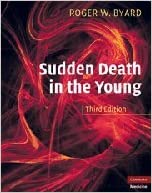 Author: Roger W. Byard
Author: Roger W. Byard
Publisher: Cambridge University Press – 685 pages
Book Review by: Nano Khilnani
At the outset, we want to inform readers that the data shown on Table 2.2 on page 9 of this book is about accidental deaths in South Australia for children aged from O to 16. Also, the general information contained in this third edition published in 2010 (two previous editions were released in 2004 and 1994) is about a decade old, as today is the third of January, 2021.
Whenever we want to find current information on any topic, we turn to Wikipedia – it is our best, most reliable source. Besides unintentional trauma caused by accidents and oversights, there are also intentional trauma cases caused by homicides, suicides, and other events. Below is the outline of contents discussed in this book:
- Section I – Introduction
- Sudden pediatric death: issues and overview
- Section II – Unintentional Trauma
- Accidents
- Section III – Intentional Trauma
- Homicide and suicide
- Section IV – Natural Disease
- Infectious conditions
- Cardiac conditions
- Vascular conditions
- Respiratory conditions
- Neurological conditions
- Hematological conditions
- Gastrointestinal and genitourinary conditions
- Metabolic and endocrine conditions
- Miscellaneous conditions
- Section V – Maternal, Fetal and Neonatal Conditions
- Maternal, fetal and neonatal conditions
- Section VI – Sudden Fetal Death Syndrome
- Sudden fetal death syndrome
Appendices
- Appendix I – Autopsy information pamphlet
- Appendix II – The Sudden Unexplained Infant Death Investigation Report Form
- Appendix III – Pediatric forensic autopsy guidelines
- Appendix IV – International Standardized Autopsy Protocol
- Appendix V – CDC Growth Charts
- Appendix VI – Infant organ weights
- Appendix VII – Normal heart weights for body weight for individuals less than 20 years of age
- Appendix VIII – Autopsy checklist for possible non-accidental injury
- Appendix IX – Autopsy checklist for possible metabolic disorders
This third edition published in 2010 contains an extended range of conditions as well as an extended age range, from fetal all the way to young adulthood, with perinatal, infant, childhood, and adolescent stages in between
Among the other important features of this book are the following:
- The number of chapters on intentional and non-intentional injury has been increased, to show that trauma as a cause of death in the young. What this implies is the importance of pathology and the large role it can play in injury prevention
- The number of pages of this third edition has been significantly enlarged, to allow for the inclusion of 350 new full-color illustrations, many of which depict rare conditions. (You’ve heard it said: ‘a picture is worth a thousand words’)
- Lists of reference materials have as well been made lengthier, so readers can consult other sources for deeper information on a topic of their particular interest
- Observational studies presented in this edition show examples of real-life cases important in today’s need for accurate details.
There is a lot in this book that makes it superior to others in the field of investigating and understanding the causes of sudden death in the young. The size of this book and the wealth of information available in it, on this relatively new medical specialty, make it stand out above other books. A valuable book indeed!
Author:
Roger W. Byard is the Marks Chair of Pathology at the University of Adelaide. He is Senior Specialist Forensic Pathologist at Forensic Science SA in Adelaide, Australia.





